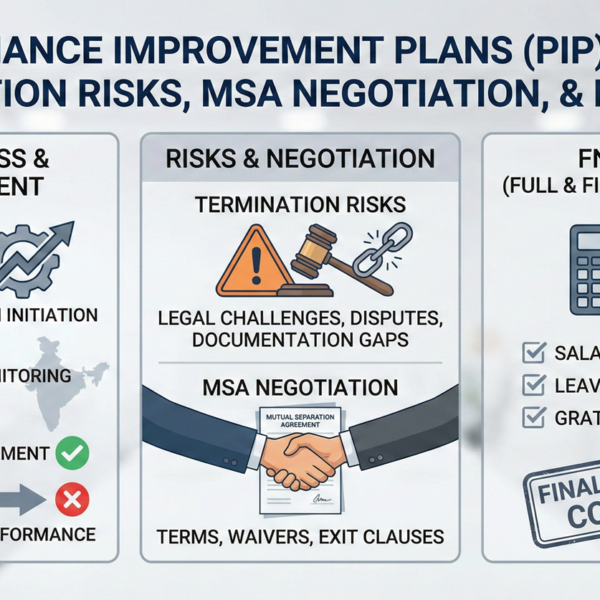Navigating a relationship with familial opposition can be daunting, but it’s important to know that you have strong legal rights in India. The law provides clear protections for individuals who choose a life partner against the wishes of their family, treating threats, harassment, and confinement as serious criminal offenses. This guide outlines your legal options, from understanding your constitutional rights to taking practical steps like filing an FIR and seeking a restraining order. It is designed to empower you with the knowledge needed to secure your safety and uphold your fundamental right to marry a person of your choice.
Legal Recourse & Protections Against Family Threats in India
Understanding your rights under the Indian legal system when facing threats from family over your personal choices.
1. Executive Summary
The Indian legal framework provides robust protections for individuals facing threats or harassment, particularly when these actions stem from family members disapproving of personal choices, such as relationships. At its core, the right to choose a life partner is recognized as an intrinsic aspect of personal liberty, enshrined under Article 21 of the Indian Constitution. Actions by family members involving threats, intimidation, assault, or wrongful confinement constitute serious criminal offenses under the Indian Penal Code (IPC), carrying significant legal penalties. Beyond criminal prosecution, civil remedies, including restraining orders (injunctions), are available to prevent ongoing harassment and ensure safety.
For couples navigating inter-faith or inter-caste relationships, the Special Marriage Act, 1954, offers a secular legal pathway, validating their union without requiring religious conversion. Crucially, the Indian judiciary, particularly the Supreme Court, has issued explicit directives mandating state protection for couples facing threats, including the establishment of dedicated Special Cells and requiring prompt police action. To leverage these protections effectively, individuals must gather comprehensive evidence, promptly file a First Information Report (FIR) with the police, and seek expert legal counsel for strategic intervention and representation.
2. Introduction: Understanding Your Rights in India
In India, the autonomy of an individual to make fundamental life decisions, especially concerning personal relationships, is a cornerstone of constitutional liberty. This principle is vital for individuals facing opposition from family members regarding their choice of partner.
The Fundamental Right to Choose a Life Partner (Article 21 of the Indian Constitution)
Article 21 of the Indian Constitution guarantees the "Right to Life and Personal Liberty." The Indian judiciary has consistently interpreted this fundamental right expansively, extending its ambit to include the freedom to choose a life partner and to determine one's living arrangements, even for consenting adults in live-in relationships. This interpretation underscores the recognition of individual autonomy, dignity, and freedom as essential components of a person's life.
Freedom of Association and Equality (Articles 19 and 14)
The protection afforded by Article 21 is further reinforced by other constitutional provisions, creating a comprehensive shield for individual liberty. Article 19(1)(c) of the Constitution grants citizens the right "to form associations or unions". While this primarily pertains to formal groups, its underlying principle extends to personal associations, including intimate relationships, as an integral part of one's personal liberty. Complementing these freedoms, Article 14 guarantees the "Right to Equality," ensuring that all persons are equal before the law and receive equal protection of the laws.
3. Criminal Offenses Committed by Threatening Family Members
Actions undertaken by family members, if they involve threats, violence, or unlawful detention, can constitute serious criminal offenses under the Indian Penal Code (IPC). Understanding these specific provisions is crucial for pursuing legal action.
Punishment Severity for Key IPC Sections
This chart visualizes the maximum imprisonment terms for different types of threats and offenses. Hover over a bar to see the details.
Filterable Table: Overview of Relevant IPC Sections
| IPC Section | Offense | Definition | Punishment | Cognizable/Non-Cognizable | Relevance |
|---|---|---|---|---|---|
| 503 | Criminal Intimidation | Threat of injury to cause alarm or compel an act/omission. | Up to 2 years, fine, or both. | Non-Cognizable | Direct relevance for any threats made by family. |
| 506 | Punishment for Criminal Intimidation | General threats, or aggravated threats (death/grievous hurt). | General: up to 2 years. Aggravated: up to 7 years, fine, or both. | Non-Cognizable | Crucial for addressing the "threatened" aspect. |
| 507 | Criminal Intimidation by Anonymous Communication | Committing 503/506 by anonymous communication. | 506 punishment + 2 years. | Non-Cognizable | Relevant if family members are using anonymous means. |
| 351 | Assault | Gesture/preparation causing apprehension of criminal force. | Up to 3 months, fine, or both. | Non-Cognizable | Important if physical threats are involved, even without contact. |
| 340 | Wrongful Confinement | Restraining a person to prevent movement. | Up to 1 year, fine, or both. | Cognizable | Highly relevant if the girlfriend is held against her will. |
| 107 | Abetment of a Thing | Instigating, conspiring, or aiding an offense. | Defined by abetted offense. | Varies | Action against family members who instigate or plan threats. |
4. Legal Protections for Inter-Caste and Inter-Faith Relationships
The Indian legal system provides specific mechanisms to protect individuals who choose partners across caste or religious lines, recognizing these choices as fundamental rights.
The Special Marriage Act, 1954
The Special Marriage Act (SMA), 1954, serves as a crucial secular legal framework for solemnizing marriages between individuals of different religions, castes, or communities, explicitly without requiring either party to convert to the other's religion. This Act is specifically designed for those who desire a civil marriage, distinct from personal religious laws.
5. Seeking Immediate Legal Protection: Police and Courts
Proactive and informed legal action is critical for ensuring safety and securing justice when facing threats from family members. Here is a step-by-step guide on what to do.
The Legal Process: A Step-by-Step Guide
Filing a First Information Report (FIR)
The First Information Report (FIR) is the initial official record of a crime reported to the police. For cognizable offenses, the police are legally obligated to investigate once an FIR is filed.
Interactive FIR Format
Fill out this form to understand what information to include in a real FIR.
Obtaining Restraining Orders (Injunctions)
A restraining order, legally termed an injunction, is a civil court order designed to protect an individual from danger or harassment by prohibiting another person from contacting or harassing them.
6. Practical Steps and Recommendations
Gathering and Preserving Evidence
The foundation of any successful legal action rests on compelling evidence. Proactive and meticulous evidence collection is not merely advisable but essential. This includes saving threatening messages, call records, photos, videos, and medical reports. All evidence should be stored securely to prevent loss.
Importance of Consulting a Lawyer
Navigating the complexities of the Indian legal system necessitates expert guidance. An experienced lawyer can provide tailored advice, clarify intricate legal procedures, meticulously draft necessary documents, and effectively represent the individual in court. They can help strategically plan the most appropriate legal recourse.
Informing Local Police and SP
Beyond the formal step of filing an FIR, proactively informing the local police and the District Superintendent of Police (SP) about the relationship and any potential threats can serve as a preventative measure. This communication helps to clarify any misunderstandings and formally acknowledges the legitimacy of the union.
Maintaining Discretion
While constitutional rights are guaranteed, societal stigma and inconsistent law enforcement can still pose significant risks. Exercising discretion, particularly concerning publicizing the relationship on social media and maintaining a discreet location, is a pragmatic safety measure against potential familial backlash.









